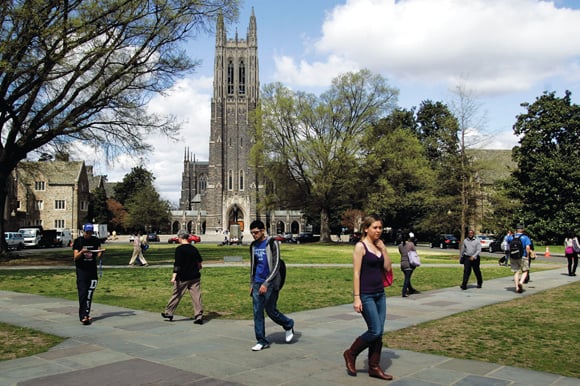GOP wants to sap health care funds to pay the $5.9 billion to freeze a hike in Stafford loan rate; Dems want to end tax breaks for big oil
A bill approved by the House of Representatives on Friday would keep the federal Stafford student loan rate at 3.4% for 12 more months instead of allowing it to double for new loans July 1.
Support for extending the lower rate is strong among both parties, but Democrats and the White House attacked the Republican measure because it pays for the $5.9 billion rate freeze out of money set to pay for a preventative public health fund called for in the health care overhaul law.
That fund was set to provide screenings for breast and cervical cancer, among other programs for disease prevention.
Democratic members sought to fund the 3.4% student loan rate by trimming tax breaks that oil companies receive.
“They refuse to end a tax break for Big Oil that never should have been given, even though the Big Five oil companies made $32 billion in the fourth quarter of last year alone,” said Rep. Sander Levin, D-Mich. “This bill is shameless.”
The White House said senior advisers to President Barack Obama will recommend a veto of the measure, HR 4628, if the proposal is also approved by the U.S. Senate and lands on the president's desk.
“This is a politically motivated proposal, and not the serious response that the problem facing America's college students deserves,” the administration said in a statement.
The issue comes as American students and their parents already are struggling with soaring higher-education costs and about $1 trillion in debt.
The student loan default rate also is on the rise, reaching nearly 9% for a two-year period ending in 2010, up from 7% the previous period.
College seniors who graduated in 2010 with student loans owed an average of $25,250, a 5% increase from 2009 graduates. Parents of 2010 graduates owed an average of $34,000, the National Association of Consumer Bankruptcy Attorneys said, based on an Institute for College Access and Success report.
Benjamin Tobias, president of Tobias Financial Advisors Inc., said that if the rate were allowed to rise to 6.8% it could have a psychological impact on decisions about whether kids attended college, even more than the financial impact in terms of dollars.
“We've seen kids not going to college already because of the high cost of college,” he said.
As large of an increase as 6.8% would be, it likely still would be lower than typical credit card or used-car loans, Mr. Tobias said. And student loan interest is tax-deductible, he said.
Harvey Meldrum, founder of Meldrum Financial LLC, said he always recommends that his clients’ children accept the federal loans to pay for college because it’s inexpensive money - and still would be even if the rate jumps to 6.8% after June 30.
The loans also help students establish credit in their names and give them “some skin in the game,” in terms of motivating them to graduate on time and find a job, he said.
Bill sponsor Rep. Judy Biggert, R-Ill., criticized the Democrats' “political maneuvering” and said she was disappointed that the two political parties couldn't work together. She said she hopes when the bill moves to the U.S. Senate, “we can iron this out and make sure” the rate doesn't increase to 6.8%.
The measure was approved 215 to 195.







